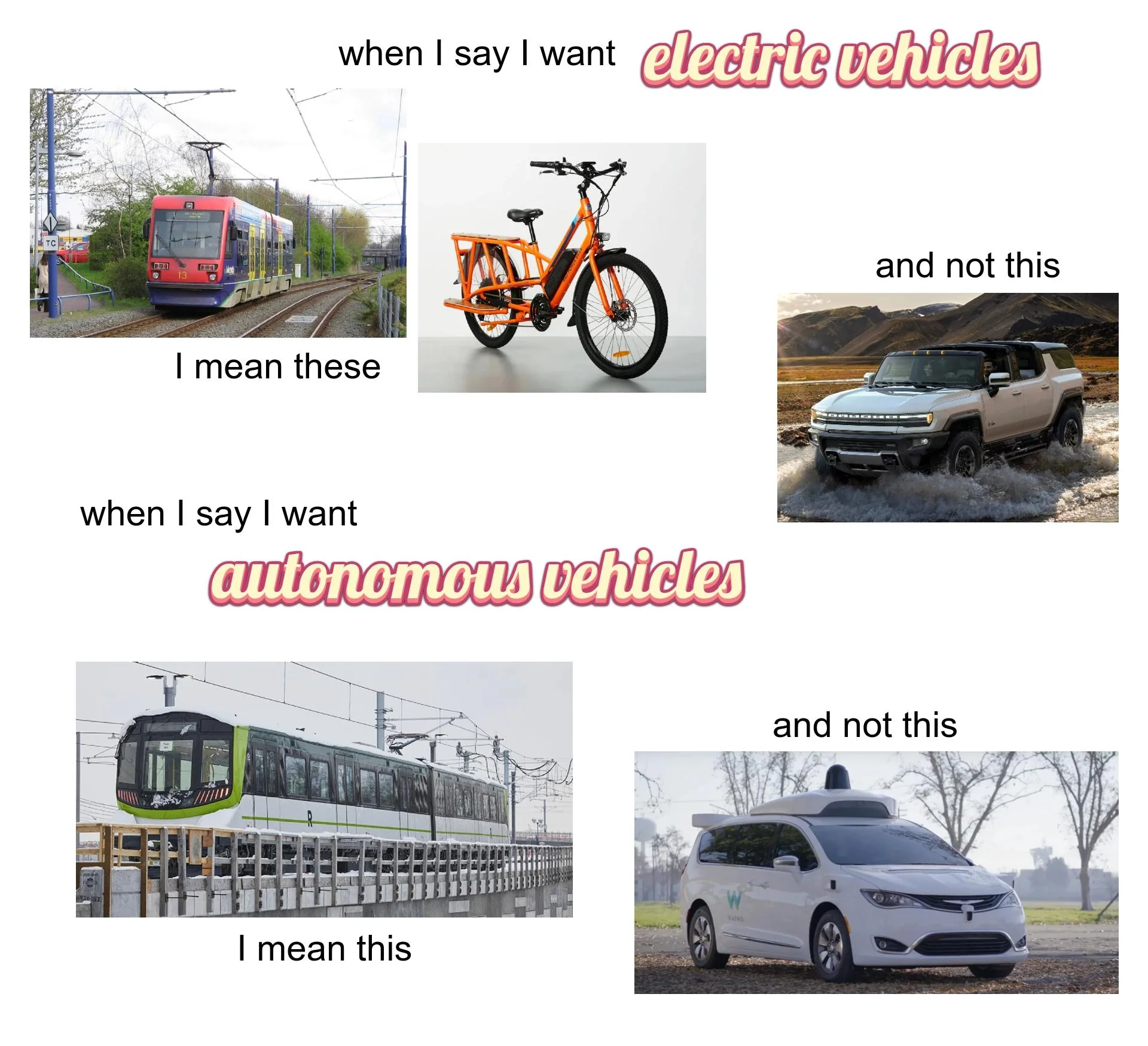Fuck Cars
A place to discuss problems of car centric infrastructure or how it hurts us all. Let's explore the bad world of Cars!
Rules
1. Be Civil
You may not agree on ideas, but please do not be needlessly rude or insulting to other people in this community.
2. No hate speech
Don't discriminate or disparage people on the basis of sex, gender, race, ethnicity, nationality, religion, or sexuality.
3. Don't harass people
Don't follow people you disagree with into multiple threads or into PMs to insult, disparage, or otherwise attack them. And certainly don't doxx any non-public figures.
4. Stay on topic
This community is about cars, their externalities in society, car-dependency, and solutions to these.
5. No reposts
Do not repost content that has already been posted in this community.
Moderator discretion will be used to judge reports with regard to the above rules.
Posting Guidelines
In the absence of a flair system on lemmy yet, let’s try to make it easier to scan through posts by type in here by using tags:
- [meta] for discussions/suggestions about this community itself
- [article] for news articles
- [blog] for any blog-style content
- [video] for video resources
- [academic] for academic studies and sources
- [discussion] for text post questions, rants, and/or discussions
- [meme] for memes
- [image] for any non-meme images
- [misc] for anything that doesn’t fall cleanly into any of the other categories
Recommended communities:
view the rest of the comments

I understand and I’m glad you’ve benefitted from it, but you’re ignoring the large number of people with disabilities that cannot walk any significant distance, while they can still drive. Old people also have an easier time driving than they do walking long distances and using public transit. Hell, I personally know plenty of people who choose to drive because they can’t walk for long without someone actively assisting them, even though they can still drive. My sibling, in fact, is one of them; the ‘transit and walkability’ movement doesn’t give two shits about them, however.
I’m not against more public transport and foot access; in fact, as an able-bodied young male who doesn’t want unnecessary debt or to be stuck in traffic, I’d prefer it. However, let’s not pretend that a lot of people haven’t been completely forgotten by the ‘lul fuck cars’ crowd.
Dutch style microcars are a greener and safer solution to physical disability and aging than full size full speed cars. Especially when you're talking about elderly people with deteriorating eyesight and slower reactions. Car dependency helps a precious few disabled people while leaving the rest of us up shit creek and contributing to the extinction of the human species. The transit and walkability movement has a solution for everyone.
Yeah, cuz people don’t need to shop. Also, I’m sorry if people like my sibling fall into a ‘precious few’ but you’re gonna need to get everyone on board if you’re selling accessibility.
Clearly.
I don't know who told you that you couldn't, but you can park a microcar at a shop.
People need space to put stuff, and there’s only so much that can be put into a dinky-ass microcar’s boot. Not to mention, people travel in groups too.
Guess what kind of transportation has much more space for groups than a car.
Do I need to specify that I’m talking about groups where at least one person has the kind of issues where ‘walk and use trains!’ isn’t a viable solution? Or should such people just not make groups or travel with young able-bodied people?
That's not what came across in your post. It reads like a blanket argument against public transport and other alternatives, microcars specifically.
I’m not here to make blanket arguments against trains and microcars (Disclaimer: I do personally think microcars are stupid), I’m saying stuff from the perspective of a guy whose loved ones are blocked out of this perfect ‘utopia’ envisioned by the ‘fuck cars’ crowd that seems to think everything will be perfect for everyone if we just got rid of all cars. No, there are those of us who’ll be cut off from being able to live independently.
I’m all for a healthier mix of transportation and I do think we need to start designing cities and living spaces that are vibrant and healthy for humans, not a sea of gray for quick-moving metal boxes. That said, cars are useful and we should find a way to accomodate them in ways that won’t exclude those of us who really do need them.
And no microcars please.
That's all this is about. I've said it elsewhere in this thread, but no one wants to eliminate cars completely from the face of the earth (well I’m sure someone does, but that’s not what’s being talked about). They should be a situational tool, not an everyday necessity for everyone. Just because some people need them doesn't mean everyone should need them.
That sentiment is something we can both agree on.
I'm guessing it's about the same amount of space as in the rear basket of a bicycle? Because that's plenty of space if the shops are accessible to visit on a daily basis, which is the case in walkable neighbourhoods.
lol you’re expecting someone who has trouble walking to shop for groceries daily?
Yeah, it's a lot less effort than the suburban car dependent 1 hour shop. You pick up a couple things from the corner store every day. In and out in two minutes. It's way less intensive
Maybe for you, but making a grocery list and buying stuff in bulk is cheaper and, even for those who live within walking distance to a store, more convenient. It’s also more time-efficient.
And, of course, this is just for groceries; people always shop for other stuff in bulk, during sales, etc.